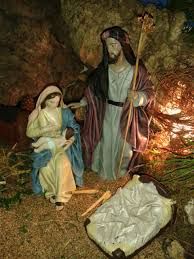Did the Early Church fathers believe in a rapture or not, and why does it matter?
Eschatology Matters
Part 4
The Rapture According to the Early Church
Those who don’t believe in a Pre-Tribulation Rapture (and sometimes a rapture of any kind) will often try to dismiss it by claiming that the Early Church neither believed in nor taught a pre-trib rapture, and that it is a new idea not put forth until recently. Some point to John Nelson Darby, considered by some to be the father of dispensationalism in the late 1800s as the culprit who came up with the fanciful idea. But did he fabricate the idea from his imagination as he is accused of doing?
Darby’s Conclusions
The historical records show that he reached his conclusions by examining closely what the Scripture actually said and compared his conclusions with the writings of the church fathers. He concluded that there was a literal kingdom and a rapture that would happen before the Tribulation. He also believed that after the rapture the Antichrist would be manifested, followed by worldwide lawlessness. The Jews would come to faith when Jesus came back to earth and reigned throughout the 1000 years of the Millennial Kingdom.
What did the church fathers really believe?
Two of the most prominent are Irenaeus and Polycarp. Let me briefly set the stage so you can see why they wrote what they did. As I will try to share here, a pre-trib view was held by many in the Early Church at least up to around 300 A.D., but in the 1st century all sorts of ides and philosophies were being spread throughout the church. One of the culprits was a man named Marcion (85-160 AD) who taught Gnosticism & shared some of his “secret knowledge“so people could “better understand” eternal matters.
He believed that upon death, souls went to some ethereal realm, but there was no such thing as a bodily resurrection. He and his philosophy infected the Church, and the members were questioning their faith and embracing doctrines of Gnosticism which claimed that the human body and all of the “material world” is evil. Therefore, believers should focus on the soul and what’s happening in the afterlife or in the heavens. Many believers became confused and frustrated. Since the rapture is a resurrection, the whole idea was questioned by many.
Irnaeus Confronts the Heresies
Then along came a missionary to France named Irenaeus (of Lyons). He went to France after hearing of an epidemic of false teaching. Many of the local churches were confused. Since the canon of Scripture hadn’t been assembled yet, he went to correct the problem. As a result, he wrote a treatise called “Against Heresies.” In Book 5 he talked about how human bodies by faith in Jesus will rise from the dead, quoting passages from 1st Corinthians 15, Matthew 24, 1st and 2nd Thessalonians and Daniel 9. He made a case that Christians are going to be resurrected, their bodies going up to heaven, and it would happen before the dark days of the Tribulation.
Polycarp
So, where did Irenaeus get his information? He was a disciple of Polycarp, a disciple of the Apostle John. I’d say that’s rather impressive. Together, Irenaeus and Polycarp were trying to keep the church pure from all the false ideas that deviated from Scripture’s clear teaching.
Here are some teachings from a few other 1st, 2nd, and 3rd century church leaders who believed what they did simply because it was what Scripture taught:
Other Early Church Writings
The Shepherd of Hermas was written in the late 100s A.D. It was a colorful series of metaphors resulting from the many visions this unknown writer had regarding the book of John and the prophecies of the end times, specifically the Rapture, the Tribulation, and the Antichrist. It appears to be written to those of the Early Church who were going through extreme persecution under Roman governors and the emperor himself. He tells believers to “look up to Jesus” as the next hope in the prophetic timeline.
While no one is claiming this is inspired by God as Scripture was, it shows that in the days of the Early Church the idea of being “caught up” in a resurrection prior to the tribulation was being discussed. Here’s another writing that does the same:
The Didache, written in the mid-2nd century is often called “The Teaching of the 12.” It is a summary of Christianity and was viewed by the Church as being like a constitution of the faith. Before all the creeds were agreed upon and compiled, people read this. In a discussion of end times events, he writes:
“Watch over your life, let your lamps be not quenched and your loins be not ungirded, but be ready, for you know not the hour in which our lord comes.
Victorinus of Patta (modern day Serbia) was fed up with all the false teaching in the late 100s into the 200s A.D. He wrote a commentary on the book of Revelation, colorfully describing what will happen according to verses 13 and 14 of Chapter 6 where the 6th seal is broken. He reminds his readers that the Church will be delivered from all this.
Clement of Rome (30 t0 100 A.D.) was alive when Jesus was crucified. He wrote several non-canonical letters to the church at Corinth. In Chapter 23 he talks about the rapture that will take place prior to the persecution after the Antichrist has been revealed and prior to God’s judgments.







Leave A Comment